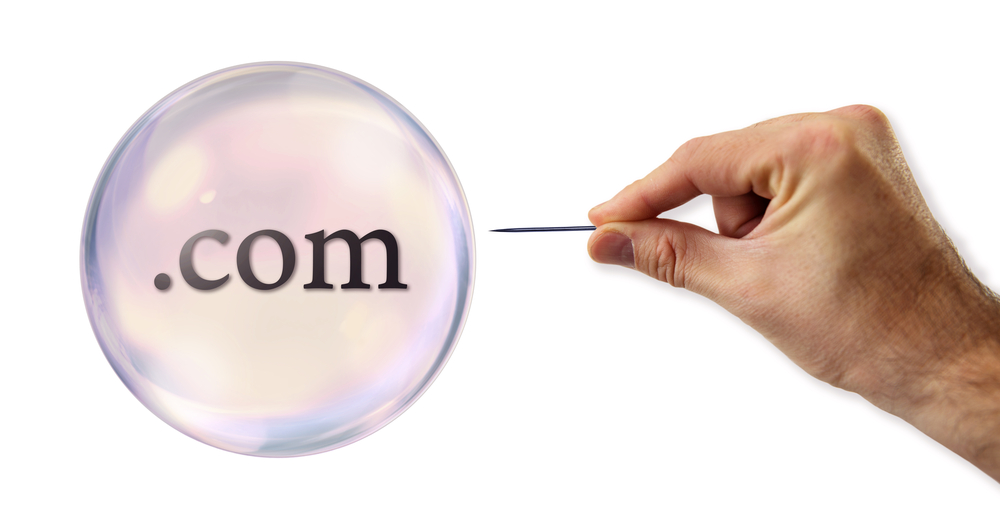The 90s tech boom is back – in a way. Last month I was at a fascinating discussion about that infamous period and its parallels to the cryptocurrency bubble of late. It was based on the National Geographic series Valley of the Boom, about some of the heroes and villains of the early days of the commercial internet, and it sent me on a trip in the PR agency Wayback Machine.
For those born after 1970, working at a tech PR agency during the dot-com era was nearly as wild as the start-up scene then, especially if it was your own agency and a startup, too. It was a time of easy money, market exuberance, and a drive toward the big score.
If you couldn’t be a successful VC or a techpreneur who cashed out at the right time, the next best thing was to have a PR or marketing agency when the dot-coms came knocking. They burned through lavish funding at a frightening rate with their eyes on an IPO. Part of the winning formula, of course, was a splashy PR campaign. It was an extraordinary period when my startup agency routinely turned down clients who had less than $30,000 a month to spend, scolded CEOs for a sloppy brand narrative, and spent far more time looking for staff than we did clients. Those things aren’t normal.
Like all bubbles, it burst in a cruel and messy way. My agency was lucky in that we had four years under our belt and several ongoing companies as clients – digital extensions of media brands and ecommerce portals for established retailers. But it was an astonishing ride with plenty of lessons. Many may apply to today’s darlings — bitcoin, other cryptocurrency, even cannabis. Here are my takeaways.
Beware the easy money
It always comes with a downside. First, there are likely to be extraordinary expectations on the part of the client, and you’ll kill yourself to exceed them, risking other, more “normal” client relationships to satisfy an unreasonable (or unreasonably funded) one. Then, too, many booms bring a scarcity of talent. The very skills and experience you need to take advantage of the opportunities come at a premium, or in some cases, are just impossible to find. Which leads to my next learning.
Loyalty is underrated
But maybe it shouldn’t be. 2019 feels like a full-employment economy, and recruiting top people is challenging, but today’s environment is nothing compared to the labor market back then. Because a barely experienced tech PR Account Supervisor could command a large salary and impressive perqs at the obscenely funded dot-coms, agencies had to offer signing bonuses and crazy benefits to compete. And as every employer learns, if someone takes a job purely for the money, they’ll soon leave it for even more money. It was a nightmare of employee churn. The moral of the story is: take care of the staff who helped you get where you are.
Chances are you can’t pick the winners
I remember being obsessed with the cool kid of the day, Kozmo.com. We pursued it but were never successful. It sounds nutty, but Kozmo’s business model was free delivery of small items within an hour of purchase, mostly by bicycle messenger. Don’t laugh – it had partnership deals with Amazon and Starbucks, and it raised $250 million. Yet Kozmo was out of business three years after it launched. If we’d won it, my agency would have probably been left with a fractured reputation and a stack of unpaid bills.
The point is, if Fred Wilson at Union Square Ventures couldn’t choose the winners, how could I? Today we make decisions based on how successful we can be in reaching a client’s goals, rather than grabbing at the next trophy. If all else fails, at least we’ll have a solid case history.
Don’t buy the hype, and don’t spread it
My friend Bob Pickard underscores this in an interview about the booming cannabis market, which may be another analogy to the dot-com frenzy. Overpromising client results, or, worse, misrepresenting claims to media, can result in disaffected clients and ruined reputations. In some cases there may be legal jeopardy. At a road show for a dot-com entrepreneur who also happened to be a friend, a board member pulled me aside and warned me not to speak on the record for the company. It seemed he didn’t fully trust the founder’s numbers. Yikes. You can sell “vaporware” once, but there’s no fallback after that.
Gravity
It’s real. What goes up will eventually come back to earth. It isn’t a PR learning, of course, but a market and business fundamental. Like any boom, you’ll need to take advantage of the opportunities while preparing for the next down cycle. That means not stopping the marketing and SEO machine, maintaining a healthy client mix without too much concentration in one area, and even turning down business that you just can’t handle.
